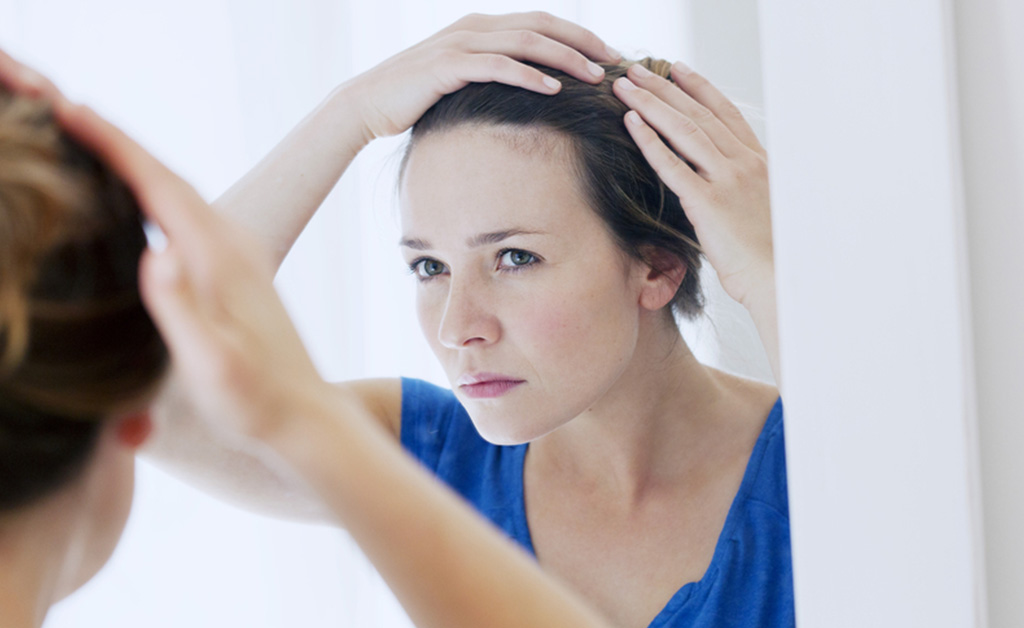
Hair loss can be a deeply distressing experience, particularly for women who have a strong emotional attachment to their hair. Whether it’s caused by medical conditions, hormonal changes, stress, or aging, hair loss can significantly impact self-esteem and emotional well-being. Coping with the emotional impact of hair loss involves understanding the underlying causes, exploring treatment options, and finding ways to maintain a positive self-image during this challenging time.
The Emotional Toll of Hair Loss: Hair is often seen as a symbol of femininity, beauty, and youth, and losing it can feel like losing a part of your identity. Many women experience feelings of grief, shame, and even depression when faced with hair loss. The emotional toll can be compounded by societal expectations that place a high value on appearance, leading to a sense of isolation and a loss of confidence.
The psychological impact of hair loss is not limited to the physical appearance but also extends to how women perceive themselves and how they believe others perceive them. For some, hair loss can lead to a reluctance to socialize or participate in activities they once enjoyed, further exacerbating feelings of isolation and sadness. It’s important to acknowledge these emotions and seek support, whether through friends, family, or professional counseling, to navigate the emotional challenges of hair loss.
Understanding the Causes: Understanding the causes of hair loss can help in finding appropriate treatments and coping strategies. Common causes include hormonal changes, such as those experienced during menopause or pregnancy; medical conditions, such as alopecia areata or thyroid disorders; and stress, which can trigger a condition called telogen effluvium, where hair enters the shedding phase prematurely. Additionally, certain medications, nutritional deficiencies, and hairstyling practices that cause tension on the scalp can contribute to hair loss.
If you’re experiencing hair loss, it’s important to consult with a healthcare professional to determine the underlying cause and explore potential treatments. In some cases, addressing the root cause, such as managing stress or correcting a nutritional deficiency, can help to reduce hair loss and promote regrowth. In other cases, medical treatments such as topical minoxidil, oral medications, or hair transplantation may be recommended.
Exploring Treatment Options: There are various treatment options available for women experiencing hair loss, ranging from medical treatments to cosmetic solutions. Topical treatments like minoxidil can help stimulate hair growth and slow down the shedding process, while oral medications like spironolactone can address hormonal imbalances that contribute to hair loss. In more severe cases, hair transplantation or scalp micropigmentation may be considered.
For those who prefer non-medical solutions, wigs, hairpieces, and extensions offer a way to regain the appearance of a full head of hair. Today’s wigs and hairpieces are more realistic and comfortable than ever, providing a viable option for women who want to maintain their confidence and appearance during hair loss. Additionally, changing your hairstyle or opting for a shorter cut can help to make thinning hair less noticeable and reduce the emotional impact of hair loss.
Building Self-Esteem: Coping with hair loss involves more than just addressing the physical aspects; it’s also about building self-esteem and finding ways to maintain a positive self-image. One of the most important steps in this process is to practice self-compassion and recognize that hair loss does not define your worth or beauty. Focusing on other aspects of your appearance and personality that you love can help to shift the focus away from hair and remind you of your inner strength and resilience.
Engaging in activities that boost your confidence, such as exercise, hobbies, or spending time with loved ones, can also help to improve your mood and self-esteem. Surrounding yourself with supportive people who understand what you’re going through can provide a sense of comfort and reassurance during this challenging time.
Finally, it’s important to remember that you’re not alone in your experience. Many women face hair loss at some point in their lives, and there are communities and resources available to provide support and guidance. Whether it’s through online forums, support groups, or counseling, reaching out to others who understand your experience can be a valuable source of strength and encouragement.
Embracing Change: While hair loss can be a difficult and emotional journey, it also offers an opportunity to embrace change and redefine your sense of self. Some women choose to embrace their new look by experimenting with different styles, colors, or accessories, while others find strength in letting go of societal expectations and embracing their natural beauty. Whatever path you choose, it’s important to do what feels right for you and to take care of yourself both physically and emotionally.
Coping with hair loss requires a holistic approach that addresses both the physical and emotional aspects of the experience. By exploring treatment options, seeking support, and focusing on self-care, you can navigate the challenges of hair loss with resilience and confidence, and find new ways to celebrate your unique beauty.
These sections provide insights into the emotional connection between women and their hair, the challenges of hair loss, and the psychological impact of changing hairstyles. Whether you’re looking for practical advice, emotional support, or a deeper understanding of the role hair plays in women’s lives, these topics offer valuable information to help you navigate your own hair journey.
Comments are closed